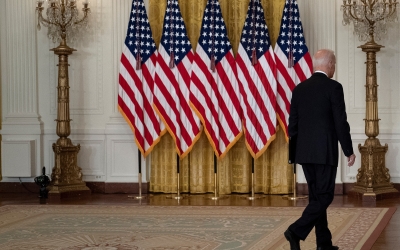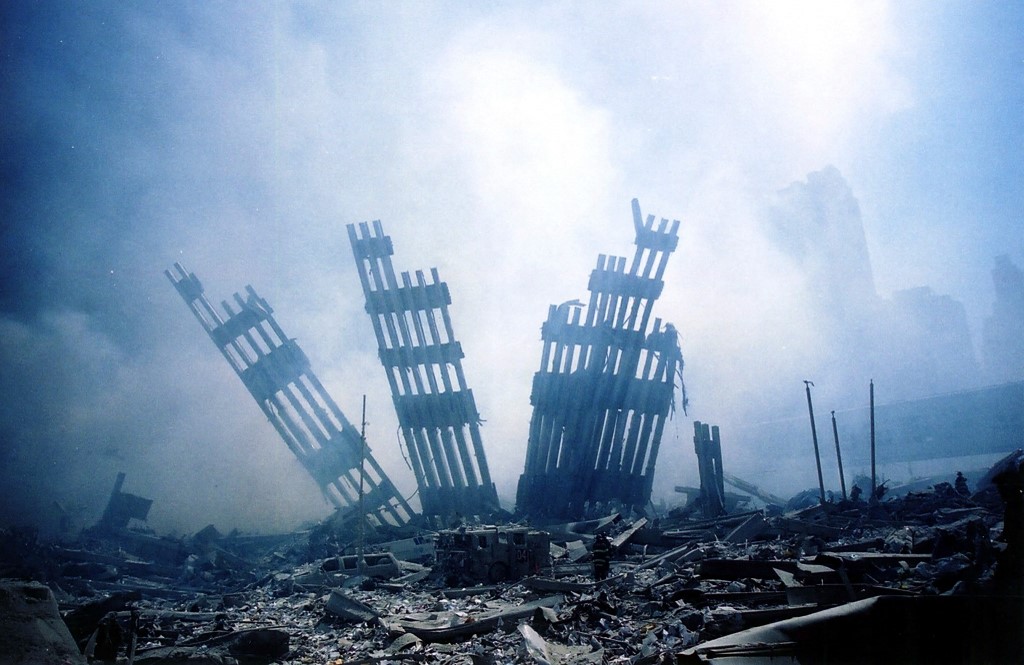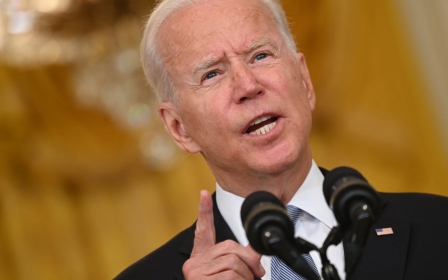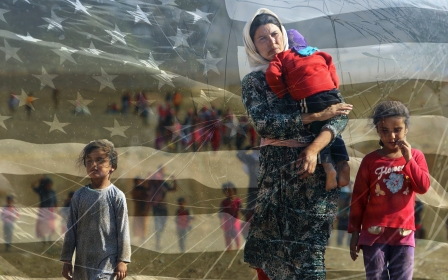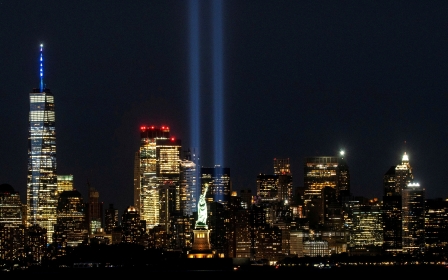The Afghan fiasco: Pakistan, the Taliban, and 9/11
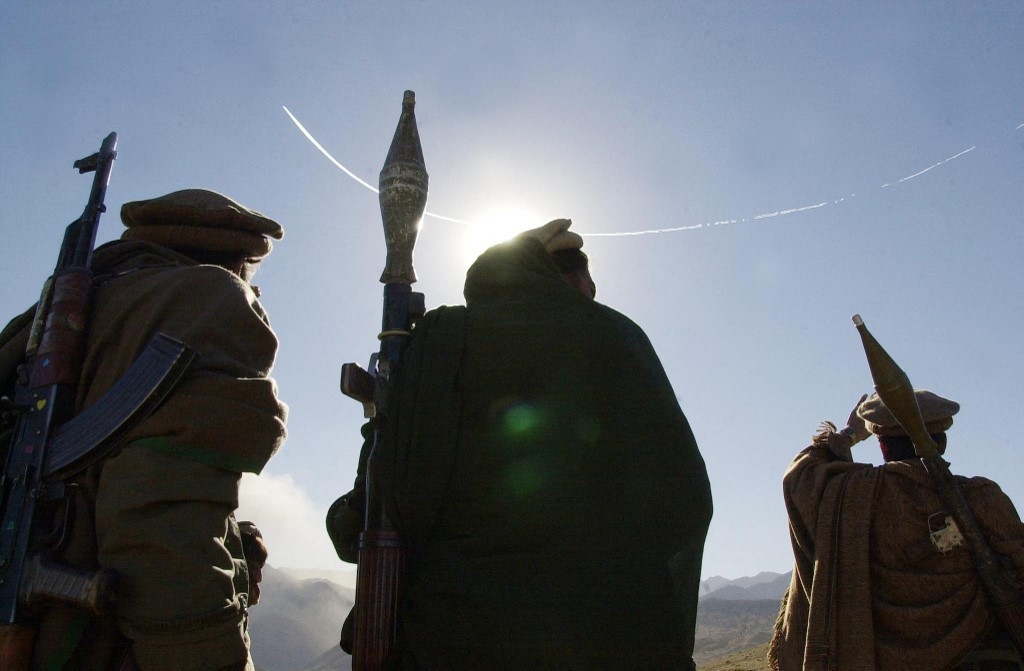
Around 8am on September 11 2001, Pakistani intelligence chief Lt Gen Mahmud Ahmed was at a breakfast meeting at the US Capitol with Senator Bob Graham, chair of the Senate Intelligence Committee, and his counterpart in Congress, CIA veteran Porter Goss. While discussing Osama bin Laden and al-Qaeda, news of the first plane strike on the World Trade Centre interrupted the meeting.
Former CIA chief George Tenet later claimed that he “tried to press” ISI’s General Ahmed to do something about Taliban support for bin Laden during the ISI chief’s visit to Washington on the eve of 9/11. But Ahmed was supposedly “immovable when it came to the Taliban and al-Qaeda”.
Following the attacks on New York and Washington 20 years ago that morning, Ahmed was removed as ISI chief by Pakistani President Pervez Musharraf.
Pakistan’s Dawn reported on 9 October 2001 that "Director General of Pakistan's Inter-Services Intelligence (ISI) Lt Gen Mahmud Ahmed has been replaced… after the FBI investigators established credible links between him and Omar Sheikh", the notorious militant who allegedly wired money to the 9/11 terrorist Mohamed Atta, and was later jailed for the murder of Wall Street Journal reporter Daniel Pearl.
The story about Ahmed's links to Sheikh was picked up by the Wall Street Journal and the AFP but mostly ignored. What was not in doubt was the ISI's ties to the Taliban and Bin Laden, dating back to the 1980s war against the Soviets in Afghanistan.
Building the Taliban
The ISI nurtured and supported the Taliban in its takeover of Afghanistan in 1996; no doubt it is celebrating its recapture of the country in 2021. Pakistan's Prime Minister Imran Khan said of the Taliban victory this week: “What is happening in Afghanistan now, they have broken the shackles of slavery.” Carnegie Professor Aqil Shah told the BBC: "The ISI has been the principal facilitator of the Taliban…[and] sees their success as a strategic victory against India.”
Today there is a lot of soul searching and gnashing of teeth in the West about this strategic defeat, but the fatal flaw was built into the war and occupation from the get-go. The military defeat of the Taliban with the aid of the Northern Alliance had to be maintained with a permanent western garrison. Hundreds of billions of dollars were poured in to prop up the government, a few got very rich, but the vast majority of Afghans, including women and girls who the West claimed it was there to protect, never benefited.
The war on terror was always a means to project US power and militarism in central Asia and the Middle East. Behind it lay the nexus between the West and jihadist militants and their regional sponsors dating back to the Afghan war against the Soviets in the 1980s. The result of this strategy was a global terror threat that emerged in the 1990s, when the so-called "Afghan Arabs" returned to their home countries, and fought in Bosnia and Chechnya.
Following the 9/11 attacks, President George W Bush declared war on the Taliban, after the group refused to hand over bin Laden. But Bush took no action against either Pakistan or Saudi Arabia, home to 15 of the 19 hijackers.
The CIA and NSA had been tracking the movements of several of the al-Qaeda militants since at least 1998, following the bombing of two US embassies in Africa. The CIA knew since early 2000 that one of them - Khalid al-Mihdhar - had multiple entry visas to the US. Al-Mihdhar was being tracked by eight allied intelligence agencies on his way to a key al-Qaeda meeting in Malaysia in January 2000 organised by 9/11 “mastermind" Khalid Sheikh Mohammed.
He and fellow terrorist Nawaf al-Hazmi were linked to the African embassy bombings, and later the attack on the USS Cole in Yemen. They arrived in Los Angeles on 15 January 2000. Incredibly, knowledge of the movements of these men within the US was not shared with the FBI until 22 August 2001, three weeks before the attacks. This is despite the fact that memos about their movements were seen by dozens of CIA officers.
What the CIA knew
Former counter-terrorism tsar Richard Clarke, who served under Clinton and Bush, was also kept out of the loop. In a 2011 interview he claimed that the CIA had deliberately withheld this information. Tenet and other CIA officials vehemently denied this. But as authors John Duffy and Ray Nowosielski wrote in their acclaimed 2017 book The Watchdogs Didn’t Bark, this denial was part of a wall of obfuscation by CIA officials before and after 9/11. The authors also showed how an NSA report based on surveillance of al-Qaeda's Yemen hub revealed the detailed operational network for attacks in the US, naming key players. It never saw the light of day
In 2016 Clarke wrote an op-ed for ABC News in which he said: “A major element of the 9/11 tragedy may remain unrevealed: a possible joint CIA-Saudi spy mission on US soil that went bad and eventually allowed 9/11 to proceed unimpeded.” That theory has never been substantiated. Oddly, Saudi spy chief Prince Turki Al Faisal resigned after 22 years in the post on 31 August 2001. The rest is history, a period of global war which President Biden has unilaterally ended with the US pullout from Afghanistan.
US Secretary of State Antony Blinken tried to justify the US pullout this week by saying Washington had "fulfilled" its original mission in Afghanistan, which was to oust al-Qaeda chief Osama bin Laden. But it did that in December 2001, 20 years ago, when a US-led Afghan force failed to find him at Tora Bora, and Bin Laden was able to escape to Pakistan.
Finding Osama
Ten years later the US found Bin Laden in a compound in Abbottabad, the home of Pakistan’s military elite, and President Barack Obama sent a team to kill him. Bin Laden never faced a court or a criminal interrogator to ask him what he knew.
The US and its allies continued the Afghan operation for another decade, with tens of thousands of Afghans paying with their lives.
What can we learn from this debacle? That wars are rarely fought for the reasons politicians say they are (rooting out terrorists, finding WMDs, bringing democracy), and that once they start, they are very hard to finish. That intelligence agencies often get up to no good, and the line between spying on terrorists and protecting assets is often fuzzy.
As NSA whistleblower Edward Snowden aptly put it: "Terrorism has always been what we in the intelligence world call a cover for action. Terrorism is something that provokes an emotional response that allows people to rationalise authorising powers and programmes that they wouldn't give otherwise."
Along the way, countless people will suffer, trillions of dollars will be spent, military contractors will make a great deal of money, and none of the officials and politicians who are culpable for these wars and the crimes inhered in them will be held accountable.
This article is available in French on Middle East Eye French edition.
Middle East Eye delivers independent and unrivalled coverage and analysis of the Middle East, North Africa and beyond. To learn more about republishing this content and the associated fees, please fill out this form. More about MEE can be found here.



